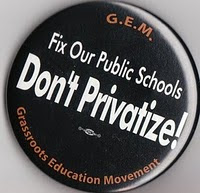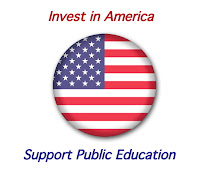Be sure to enter your email address in the new Follow Us By Email box in the right-hand column to be informed when our blog posts are published.
 |
Illustration 31870771 © Norbert Buchholz | Dreamstime.com |
Some truths should make us uncomfortable
Despite the objections from some parts of the American populace, race relations in the United States have been an issue since our nation was founded. Discrimination against people of color didn't end with the Emancipation Proclamation, the Civil Rights Amendments (#13, 14, and 15), or the Civil Rights Movement of the 1960s.
Slavery, Slave Codes, Jim Crow, the Civil Rights Movement, and continuing work for improved race relations and civil rights are all part of the American story and must be addressed by schools. We can't hide our heads in the sand and pretend that racial inequity and racial tensions don't exist.
From School Matters
Give credit to the Carmel High School students who stood up to the community members who think they shouldn’t be exposed to hard truths about race in America. That takes courage in a district where only 7% of students are Black or Hispanic.
According to the Indy Star, five students took to the mic at a recent Carmel Clay School Board meeting to defend the district’s efforts to be more inclusive about race, gender and other factors.
“They shared what it’s like to be a student in Carmel and stressed their support for the diversity, equity and inclusion (DEI) work happening in the district,” reporter MJ Slaby wrote. “The students said it fosters understanding and helps to provide representation to all students.”
You’d think supporting equity and inclusion would be a no-brainer, but it’s not. In several Hamilton County school districts – Carmel, Hamilton Southeastern, Westfield-Washington and Noblesville – residents have turned out at board meetings to voice objections.
The Problem of Parent Centered Education
From Curmudgucation
Teacher gag laws spreading across the country are generally billed as anti-CRT, but of course their reach is much broader than that, forbidding discussion of "controversy" and outlawing any teaching that might make students "uncomfortable" or be "divisive."
The debate--well, actually not a lot of real debate because GOP legislators are using their majorities to just ram these bills through--even highlights apparent splits in the reformy astroturf community. This week the National Parents Union was in Tulsa to march in commemoration of the Tulsa Race Massacre (a topic that now probably can't be taught in Oklahoma) while the Parents Defending Education continue to work hard to ferret out anyone teaching controversial race issues (by which they appear to mean any race related issues at all). It's an odd apparent split between people who have worked in the edu-astro-turf world for a while.
But these groups, and the larger push for these restrictive teacher laws, actually feed one basic tenet of the privatizing push--the idea that education is a consumer good, and the real consumers are parents. Further, as the primary consumer, the argument goes, parents should get to decide how the school works, what the teachers teach, the whole operation.
There are a couple of problems with this idea of parent-centered education.
INDIANA TEACHER SALARIES
Push for $40,000 minimum teacher salary in Indiana puts pressure on rural districts
Sadly, Hoosiers didn't elect legislators who understand that better funding from the state is necessary for poor and rural districts to raise teacher pay. The legislators that were elected are more interested in giving taxpayer funds to private schools and charters than in raising teacher pay to attract and retrain teachers in those poor and rural districts.
From Chalkbeat*
After wrapping up the school year last week, kindergarten teacher Nicole Damm was right back in the classroom Monday planning summer school lessons.
She’s working this summer to help her students — but also for the extra cash. As a first-year teacher at Southern Spencer Schools, Damm made $38,000, leaving her driving a 2002 Pontiac Firebird with a leaky roof for most of the year, and unsure when she’ll be able to redo the temporary plywood floors in her fixer-upper house.
Even though she thinks teachers are underpaid, the low salary is worth it to her because this was her dream: to work in the district where she went to school and where her mom still teaches.
“I want to be the reason why kids want to come to school every day,” Damm said.
To improve pay for new teachers like Damm, Indiana lawmakers are requiring schools to try to raise minimum salaries to $40,000 by 2022-23. But that’s a particularly tough ask for rural districts, where first-year teaching salaries average just $38,343.
IPS JOINS WITH CHARTERS
Indianapolis Public Schools plans to partner with charter schools for remote option
Is it wise for IPS to enter into an agreement with virtual charter schools? The success rate for virtual charters is pathetically low compared to brick and mortar public schools.
A remote option seems to be needed since the pandemic isn’t over, but turning the job over to virtual charter schools seems like an unwise risk.
From Chalkbeat*
Instead of offering its own remote instruction next school year, Indianapolis Public Schools proposes to direct students to two local virtual charter schools.FWCS NAMES NEW SCHOOL LEADERS
Students who want to continue all-remote learning next year would have to transfer to Phalen Virtual Leadership Academy or Paramount Online Academy. The IPS board reviewed partnership agreements Tuesday night and plans to vote on them Thursday.
Under the partnerships, the two virtual charter schools would join the district as innovation schools, operating independently with oversight and additional funding from IPS. The agreements outline a five-year term.
Leaders named for 2 new schools
From the Fort Wayne Journal Gazette**
The leadership teams for two new Fort Wayne Community schools are beginning to take shape.
Superintendent Mark Daniel on Monday introduced Byron Brown as an assistant principal for Fort Wayne Virtual Academy, which launches this fall, and Riley Johnson as assistant principal of Electric Works School, which is set to open in fall 2022.
The school board approved the recommendations along with seven elementary school principal appointments.
ARE FEWER HOOSIER STUDENTS HEADING TO COLLEGE?
Indiana financial aid applications dip, pointing to fewer students heading to college
Fewer Hoosier students are filling out Federal Student Aid forms. Does that mean that fewer are going to college? If so, is it because the average college student graduates with personal debt approaching nearly $40,000?
From Chalkbeat*
Statewide completion rates fell 6% compared with last year, even after the deadline extended from April 15 to Saturday. The Free Application for Federal Student Aid, or FAFSA, is required for students to receive federal and state aid and, often, to qualify for scholarships and aid from colleges and private organizations.*Note: Financial sponsors of Chalkbeat include pro-privatization foundations and individuals such as Bloomberg Philanthropies, the Chan Zuckerberg Initiative, EdChoice, Gates Family Foundation, The Walton Family Foundation, and others.
With fewer students applying for financial aid, experts say they expect a correlating decline in college enrollment.
**Note: The Fort Wayne Journal Gazette has changed its online access and is now behind a paywall. Digital access, home delivery, or both, are available with a subscription. Staying informed is important, and one way to do that is to support your local newspaper. For subscription information go to fortwayne.com/subscriptions/
###













